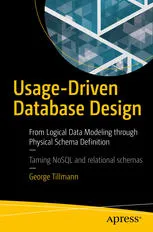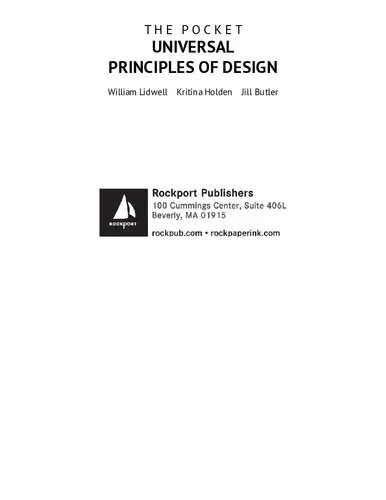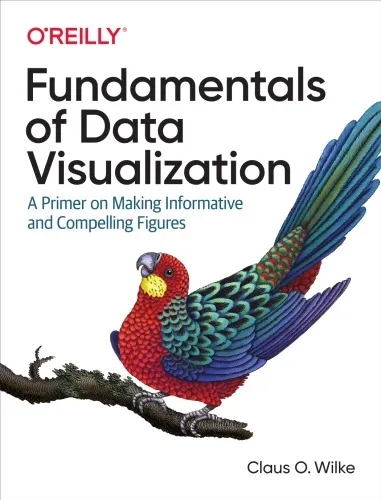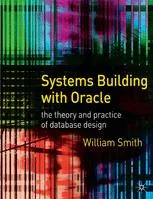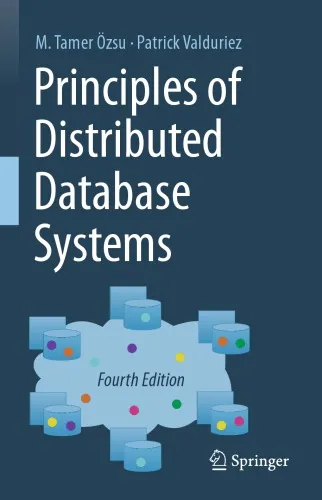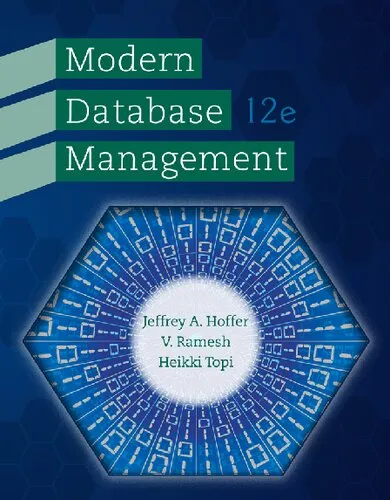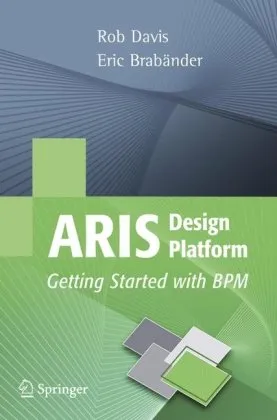Usage-Driven Database Design: From Logical Data Modeling through Physical Schema Definition
4.0
Reviews from our users

You Can Ask your questions from this book's AI after Login
Each download or ask from book AI costs 2 points. To earn more free points, please visit the Points Guide Page and complete some valuable actions.Related Refrences:
Introduction to 'Usage-Driven Database Design: From Logical Data Modeling through Physical Schema Definition'
In today's digital age, data is not merely a byproduct of business operations but a core asset that drives decision-making and strategic initiatives. The book "Usage-Driven Database Design: From Logical Data Modeling through Physical Schema Definition" offers a comprehensive exploration into the methodologies and best practices that underpin effective database design, tailored specifically to meet the needs of businesses. This book is essential for database designers, data architects, and IT professionals striving to deepen their understanding of usage-driven design principles and their practical applications.
Detailed Summary of the Book
The book unfolds the concept of usage-driven design, presenting it as an approach where the design of a database is dictated by how it is intended to be used, rather than what data it will contain. This innovative perspective challenges traditional database design paradigms, which often focus overly on data structure without sufficient consideration for functionality or user requirements.
The journey begins with logical data modeling, where the emphasis is on understanding and documenting the data requirements without being bogged down by technical constraints. The author provides a step-by-step guide to constructing logical models that accurately reflect business requirements. Chapters are dedicated to elucidating core concepts such as entities, attributes, and relationships, providing readers with solid foundational knowledge.
Subsequently, the narrative transitions into the realm of physical schema definition. Here, emphasis is laid on translating logical models into efficient, real-world database schemas. The author delves into critical topics such as normalization, indexing, and query optimization, offering insights that encourage readers to make informed, usage-centric decisions. Readers are taught how to balance theoretical purity with the performance needs of practical implementations.
Key Takeaways
- A paradigm shift in database design, focusing on usage rather than structure.
- Step-by-step methodologies for analyzing business requirements and translating them into logical models.
- Practical techniques for defining efficient physical schemas that meet performance standards.
- Comprehensive understanding of normalization, indexing, and data integrity.
- Innovative strategies for integrating user behavior analysis into database design processes.
Famous Quotes from the Book
"The success of a database is not measured by how effectively it stores data, but by how conveniently it serves its intended users."
"A logical data model is not a blueprint for a database, but a dialogue tool that bridges the gap between business need and technical realization."
Why This Book Matters
In a landscape where businesses are grappling with ever-increasing data complexity and performance demands, "Usage-Driven Database Design: From Logical Data Modeling through Physical Schema Definition" stands out as a pivotal resource. It empowers professionals to see beyond traditional data storage tactics, encouraging them to place user needs at the forefront of database strategy. This book fosters a holistic understanding of database architecture, blending theoretical rigor with practical insight, and ultimately equipping readers to design databases that not only store data but transform it into a potent tool for business success.
The methodologies outlined in the book are based on years of industry experience and are continually supported by real-world examples and case studies. This makes it a valuable addition to the library of both novice designers looking to establish foundational knowledge and seasoned architects seeking to refine their craft.
Free Direct Download
You Can Download this book after Login
Accessing books through legal platforms and public libraries not only supports the rights of authors and publishers but also contributes to the sustainability of reading culture. Before downloading, please take a moment to consider these options.
Find this book on other platforms:
WorldCat helps you find books in libraries worldwide.
See ratings, reviews, and discussions on Goodreads.
Find and buy rare or used books on AbeBooks.
1434
بازدید4.0
امتیاز0
نظر98%
رضایتReviews:
4.0
Based on 0 users review
Questions & Answers
Ask questions about this book or help others by answering
No questions yet. Be the first to ask!
